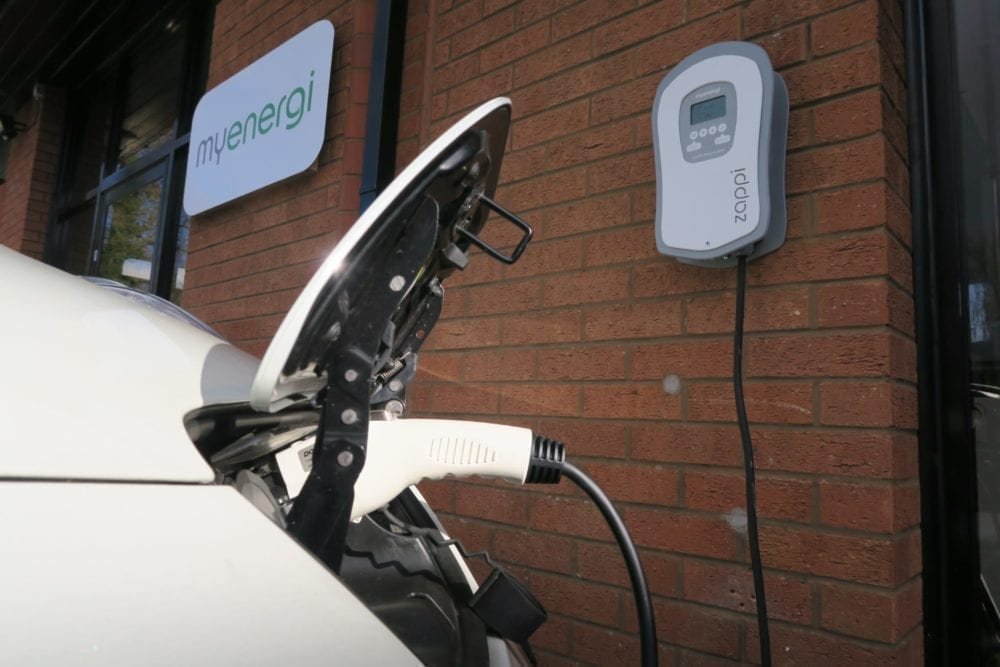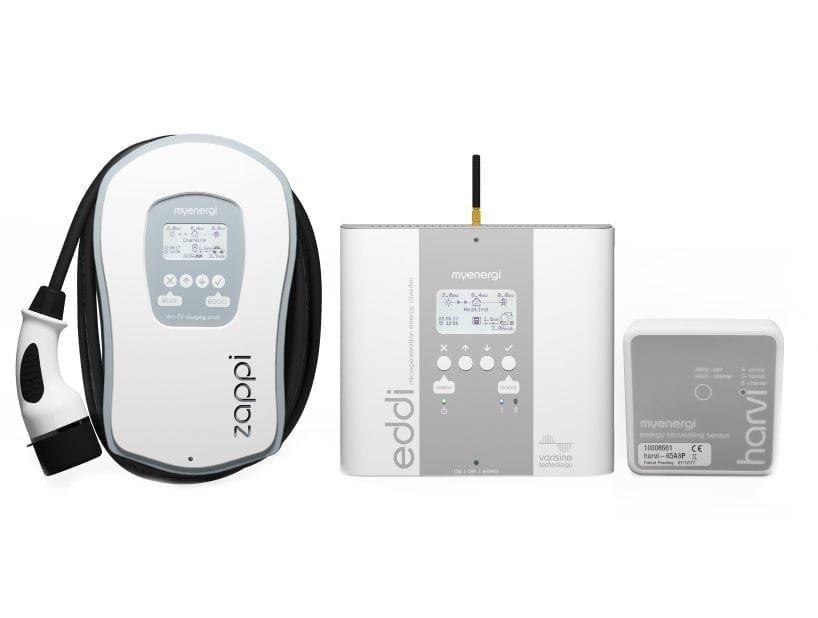This article first appeared in our spring ’18 issue of MyGreenPod Magazine, The Conscious Revolution, distributed with the Guardian on 04 May 2018. Click here to subscribe to our digital edition and get each issue delivered straight to your inbox
In the last issue of MyGreenPod Magazine, we talked to Lee Sutton and Jordan Marie Brompton, co-founders of myenergi, about how the Lincolnshire-based eco-product manufacturer is helping householders make more use of the renewable energy they generate at home
Homeowners with solar panels or a wind turbine send around 80% of the power they generate back to the grid. This means they’re missing out on additional environmental – and financial – benefits from microgeneration infrastructure they’ve already installed.
Use your energy – if you generate your own renewable energy, we salute you, but why export up to 80% to the grid when you could use it yourself?
Solutions and savings
Lee and Jordan spotted this issue and launched two products in response: a smart power diverter (the ‘eddi’) that sends surplus energy to a designated area, such as the immersion heater, storage heater or underfloor heating, and a first-of-its-kind intelligent electric vehicle charger (the ‘zappi’) that charges EVs using surplus energy that would otherwise have been exported to the National Grid.
Both products help to save power and reduce utility bills; the eddi, which costs £365 (including VAT) can cut an average household’s energy bill by up to £250 per year. The zappi (£495, including VAT) is an OLEV-approved device, meaning you could claim £500 back from the government’s Office for Low Emission Vehicles if you’ve just bought an electric car. This is the only smart EV charger on the market that pays for itself in savings.
Ramping up production
The two products only hit the market in September 2017, but myenergi is already earning deserved recognition as a major player in the growing EV and renewable energy market.
Lee and Jordan have now secured an investment of £1.2 million from high-profile businessmen Sir Terry Leahy, former CEO of Tesco and a start-up investor, and Bill Currie, founder of the William Currie Group. Thanks to the investment, myenergi will be able to increase production in response to the high demand for its products; the small team of seven has already almost doubled in size – and the company’s still recruiting.
Satisfying demand
The team has worked hard with limited funds to release innovative products that provide total flexibility when it comes to choosing and managing where a home’s self-generated energy goes. The British manufacturer is winning the hearts and minds of customers interested in a sustainable future, electric vehicles and renewable energy.
The investment has arrived at a perfect time to ramp up production to satisfy demand. Domestic UK solar installations are approaching the 1 million mark and we currently have 135,000 electric cars and 5,000 electric vans on our roads. The demand can only increase as major car manufacturers follow Volvo’s lead; the Swedish company has pledged to make 100% of its new models electric from 2019.
 Play Video about This Rock Might Just Save The World
Play Video about This Rock Might Just Save The World Play Video about Play 2 hours of rock
Play Video about Play 2 hours of rock Play Video about Play 2 hours of brook
Play Video about Play 2 hours of brook Play Video about Play 2 hours of sheep
Play Video about Play 2 hours of sheep












































